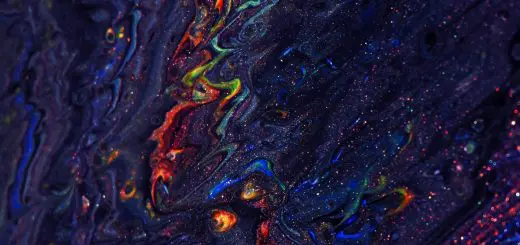Havan: Fire Ceremony in Hindu Religious Practices

Looking for more amazing products? Check out our online store and explore our collection here! Happy shopping!
Before diving in, please note: This post is for informational purposes only. If you’d like to know more about how we approach topics, feel free to check out our friendly Disclaimer Page.
Hey there, amazing readers! 
We’re committed to delivering quality posts, and your support (even just sticking around despite the ads) means everything to us. So, bear with us, and thanks for helping us keep the good vibes rolling. Now, on to the fun stuff!
TRANSLATE BUTTON AT THE END OF THE ARTICLE
Introduction to Havan Ceremony
The Havan ceremony, also known as Homam or Yajna, is a traditional Hindu ritual that involves making offerings into a consecrated fire.
This sacred practice has been an integral part of Hindu religious traditions for centuries and is believed to purify the environment, create positive energy, and invoke divine blessings.
The Havan ceremony is typically performed by a priest or a knowledgeable individual who chants mantras while making offerings to the fire.
Significance of Havan in Hinduism
Havan holds immense significance in Hinduism as it is considered a powerful tool for spiritual growth and purification.
The fire in the Havan symbolizes Agni, the god of fire, who acts as a messenger between humans and the divine.
By making offerings to the fire, Hindus believe they are offering their prayers and intentions to the gods and seeking their blessings.
The smoke that rises from the fire is believed to carry these prayers to the heavens, making the Havan ceremony a potent medium of communication with the divine.
History of Havan Ritual
The practice of performing Havan dates back to ancient Vedic times when sages and seers used fire as a means to communicate with the gods.
The Rigveda, one of the oldest texts in Hinduism, contains detailed descriptions of various sacrificial rituals, including the Havan ceremony.
Over the centuries, the Havan ritual has evolved and adapted to changing times but has retained its essence as a sacred act of worship and devotion.
Elements Used in Havan
The Havan ceremony involves the use of various elements that hold symbolic significance.
The most essential components of a Havan include:
Fire: The central element of the ceremony, representing Agni, the god of fire.
Ghee: Clarified butter used to fuel the fire and make offerings.
Wood: Used to keep the fire burning throughout the ceremony.
Herbs and spices: Offered to the fire to create fragrant smoke.
Water: Used for purification and sprinkling around the sacred fire.
Procedure of Performing Havan
The Havan ceremony follows a specific procedure that is meticulously outlined in ancient texts and scriptures.
The process typically involves the following steps:
Preparation: The area for the Havan is cleansed, and the fire pit is set up.
Invocation: The priest invokes the presence of the gods and goddesses by chanting mantras.
Offerings: Various offerings such as ghee, grains, and herbs are made into the fire while chanting specific mantras.
Prayers: Devotees offer their prayers and intentions to the gods during the ceremony.
Conclusion: The ceremony is concluded with a final offering and blessings from the priest.
Purpose of Havan Ceremony
The primary purpose of the Havan ceremony is to purify the environment, bring positive energy, and seek blessings from the divine.
Hindus believe that by participating in the Havan, they can cleanse their thoughts, intentions, and actions, leading to spiritual growth and enlightenment.
The ritual also serves as a way to express gratitude to the gods and seek their guidance and protection in various aspects of life.
Benefits of Participating in Havan
Participating in the Havan ceremony is believed to bring a multitude of benefits to the participants, both spiritually and materially.
Some of the key benefits include:
Purification: The Havan is believed to purify the mind, body, and soul of the participants.
Blessings: By invoking the gods through the ceremony, participants receive their blessings and protection.
Positive Energy: The Havan creates a positive and peaceful environment that can uplift the spirits of those present.
Fulfillment of Desires: Participants believe that their prayers and intentions offered during the Havan will be fulfilled by the divine.
Different Types of Havans
There are various types of Havans performed in Hinduism, each with its specific purpose and significance.
Some of the most common types of Havans include:
Agni Homa: A general fire ceremony performed for purification and invoking blessings.
Ganapathy Homa: A Havan dedicated to Lord Ganesha, the remover of obstacles.
Navagraha Homa: A Havan performed to appease the nine planets and seek their blessings.
Ayushya Homa: A Havan conducted for longevity and well-being.
Role of Priest in Havan
The priest plays a crucial role in the Havan ceremony as they are responsible for conducting the ritual, chanting mantras, and making offerings to the fire.
Priests are trained in Vedic rituals and have a deep understanding of the scriptures and hymns used during the ceremony.
They act as a mediator between the participants and the divine, guiding them through the ritual and ensuring its proper conduct.
Importance of Mantras in Havan
Mantras are sacred sounds or phrases that hold spiritual power and significance in Hinduism.
During the Havan ceremony, specific mantras are chanted by the priest to invoke the presence of the gods and goddesses and seek their blessings.
These mantras are believed to have the ability to create a connection between the physical and spiritual realms, allowing participants to communicate with the divine and receive their grace.
Havan in Modern Hindu Practices
While the Havan ceremony has deep roots in ancient Vedic traditions, it continues to be an essential practice in modern Hinduism.
Many temples, ashrams, and households regularly perform Havans to mark auspicious occasions, seek blessings for special events, or simply as a form of regular worship.
The Havan ceremony serves as a way for Hindus to connect with their spiritual roots, express devotion to the gods, and seek their guidance in the complexities of modern life.
Cultural Impact of Havan Ceremony
The Havan ceremony has a significant cultural impact on Hindu society, influencing various aspects of life and traditions.
The practice of performing Havans is not only a religious act but also a social and communal event that brings people together in prayer and devotion.
The ceremony is often accompanied by singing, dancing, and feasting, creating a festive and joyous atmosphere that fosters a sense of community and togetherness.
The Havan ceremony has become a cherished tradition that is passed down through generations, preserving the rich cultural heritage of Hinduism.
Conclusion
The Havan ceremony holds a special place in Hindu religious practices, serving as a powerful medium of communication with the divine and a means of seeking blessings, purification, and spiritual growth.
With its rich history, symbolic elements, and profound significance, the Havan ritual continues to be an integral part of Hindu culture and tradition.
By participating in the Havan ceremony, devotees can experience a deep sense of connection with the divine and the spiritual essence of the universe, enriching their lives and nurturing their souls.

The Enlightenment Journey is a remarkable collection of writings authored by a distinguished group of experts in the fields of spirituality, new age, and esoteric knowledge.
This anthology features a diverse assembly of well-experienced authors who bring their profound insights and credible perspectives to the forefront.
Each contributor possesses a wealth of knowledge and wisdom, making them authorities in their respective domains.
Together, they offer readers a transformative journey into the realms of spiritual growth, self-discovery, and esoteric enlightenment.
The Enlightenment Journey is a testament to the collective expertise of these luminaries, providing readers with a rich tapestry of ideas and information to illuminate their spiritual path.
Our Diverse Expertise
While our primary focus is on spirituality and esotericism, we are equally passionate about exploring a wide range of other topics and niches 

To ensure we provide the most accurate and valuable insights, we collaborate with trusted experts in their respective domains 
Our blog originally focused on spirituality and metaphysics, but we’ve since expanded to cover a wide range of niches. Don’t worry—we continue to publish a lot of articles on spirituality! Frequently visit our blog to explore our diverse content and stay tuned for more insightful reads.
Hey there, amazing reader! 
Check out our store here and take a peek at some of our featured products below! Thanks for being awesome!










